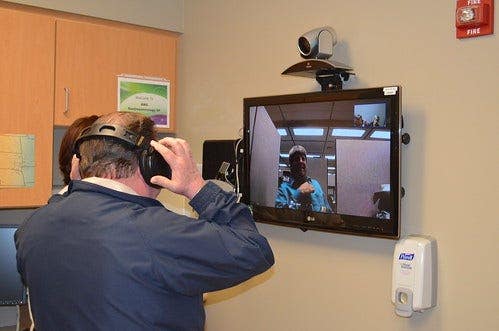A Growing Trend: Home Nurse Practitioner Visits

Benefits of a Home Visit From a Nurse Practitioner
The most obvious benefit of a house call is that patients don’t have to leave their homes. Some patients have difficulty moving due to illness, injury, or age. Being forced to go to a doctor can increase their levels of stress and pain. Having the care provider come to them instead of going to the hospital or emergency room also means lower risk of infection from hospital-borne illness.
According to the American Associations of Nurse Practitioners (AANP), nurse practitioners can arrive at the home quickly and at any hour, and are able to treat their patients more efficiently than if they had to schedule an appointment. Typically, the same nurse practitioner cares for the same patient, so the nurse practitioner becomes familiar with the patient’s needs. There are also no scheduled appointments, so an in-home nurse can stay with a patient as long as needed. Medpage Today claims the cost of an in-home nurse practitioner is about 20 percent less per visit compared to the emergency room, not including ambulance fees.
While home care has many benefits to patients, it’s not as easy for nurse practitioners. They often earn less money due to the cost of running a home-care practice, and they have less access to expensive but helpful technology used in hospitals.
The History of In-Home Care
House calls were fairly common for physicians up to and through the 1960s, but they steadily began to disappear until the practice was almost non-existent in the 1980s. The primary reason for the decline in in-home care was increased physician specialization. Typically, doctors who make house calls are general physicians, so they know how to treat the variety of illnesses they may come across when they make a home visit. Today, very few doctors are general practitioners (under 1 percent).
Nurse Practitioners, however, do have a working general knowledge of medicine suitable for in-home care. Training for nurses gives them all the knowledge they need to treat a variety of health conditions. Nurse Practitioners are also known for getting to know their patients better than physicians, which can lead to better treatment.
How Home Care Might Change In the Future
Communications technology is advancing rapidly, allowing care providers to see patients while connected to a smartphone or a computer with a webcam. According to Hedgeweek, this field of telemedicine could be the future of the house calls, allowing a nurse or doctor to diagnose and treat conditions without ever physically being present.
The market for health care is growing, with millions of new patients insured due to health care reform. Nurse practitioners are leading the way in terms of how to treat this influx of patients with house calls. The Gulf Coast Gerontological Advanced Practice Nurses Association (GCGAPNA) claim nurse practitioners are a great solution to make up for the lack of primary care doctors. They will have new opportunities to really get to know their patients and work with them in their homes, providing the quality of care that everyone deserves.
If you’re interested in advancing in your nursing career and taking advantage of the increasing need for nurse practitioners, check out the online DNP degree at Maryville University.